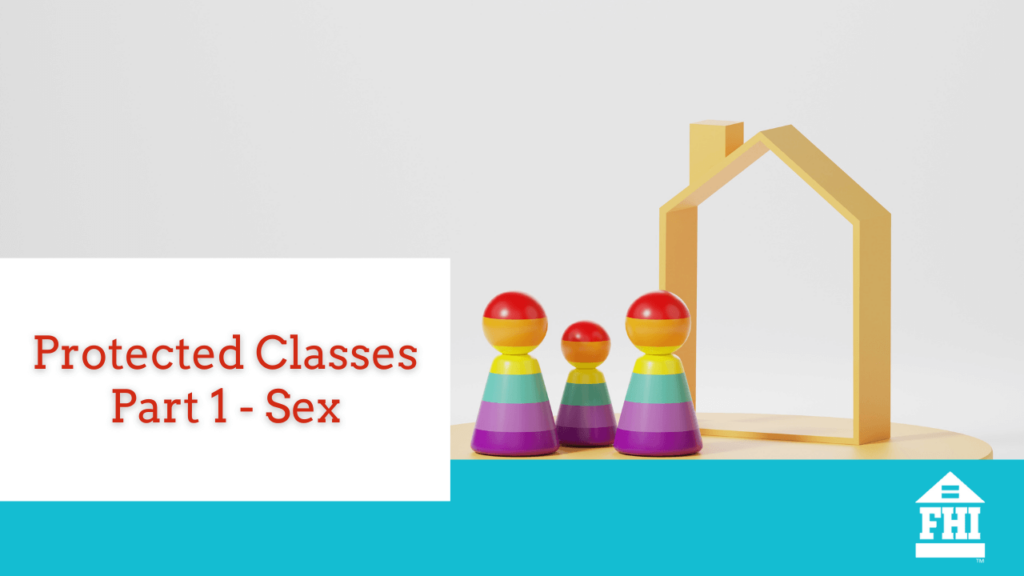In the Fair Housing industry, protected classes can be full of nuances, gray areas, and hard-to-predict scenarios. In this series, we dive in to help you focus on fair housing compliance. For this first installment, we unpack valuable insights from host Jonathan Saar and expert Kathi Williams as they delve into the complexities of sex as a protected class and how it pertains to gender-based situations.
Estimated reading time: 4 minutes

Table of contents
Is calling someone “sir” or “ma’am” a fair housing violation?
Let’s consider a common scenario that we come across in leasing offices, the use of “sir” or “ma’am”. Now generally, this form of address is not a fair housing violation. The key lies in the intent; being polite is different from intentionally offending someone. The critical takeaway for property management professionals is to be adaptable and sensitive to the preferences of prospects and residents. Apologizing and modifying your language approach, if it inadvertently offends someone, is not just about being polite; it’s about complying with the ethos of fair housing.
Is refusing to use a person’s preferred pronoun a fair housing violation?
It is important to emphasize that sexual orientation and gender identity are integral to the category of sex discrimination. Therefore, ignoring a person’s preferred pronouns, especially when done intentionally, could be seen as a fair housing violation. This underlines the need for property management professionals to be proactive in educating themselves and their staff about these aspects, ensuring that interactions with residents are both respectful and legally compliant.
Is it legal to advertise my community as LGBTQ+ friendly?
This is a gray area, with no definitive legal precedent. The focus here for property managers should be on inclusive marketing. It’s likely acceptable, and even commendable, to market a community as open to all, including LGBTQ+ individuals. However, caution must be exercised to ensure that such marketing does not convey exclusivity. Indicating that a property is only available to LGBTQ+ members could potentially be seen as discriminatory against straight or cisgender individuals. There is a delicate balance property managers must maintain in marketing efforts, ensuring they are welcoming to all without unintentionally excluding any group.
In student housing, is it discriminatory to refuse to rent a room to a male if all of the other roommates in the unit are female?
A frequent topic in student housing is the appropriateness of refusing to rent to an individual based on gender, especially when considering existing roommate compositions. In shared living spaces, it’s historically been acceptable to match roommates based on gender. However, it also needs to be understood the complexity of this issue when sexual orientation and gender identity are considered. For property managers dealing with student housing or shared living situations, it’s crucial to stay informed about the latest developments in fair housing laws, particularly regarding gender identity and sexual orientation. This might require consulting with legal experts to develop roommate-matching policies that are respectful, inclusive, and legally sound.
In summary, we delved into the nuances of respectful communication, addressing the use of formal titles and the importance of acknowledging preferred pronouns. The discussions highlighted the complexities of advertising practices, emphasizing inclusivity while avoiding exclusivity, particularly in the context of LGBTQ+ communities. Furthermore, we tackled the intricacies of gender considerations in roommate matching, a prevalent issue in student housing. It is imperative for property management professionals to continually adapt and educate themselves to maintain a balance between respect, customer service, and legal compliance within the evolving landscape of fair housing regulations.
You May Also Like:
